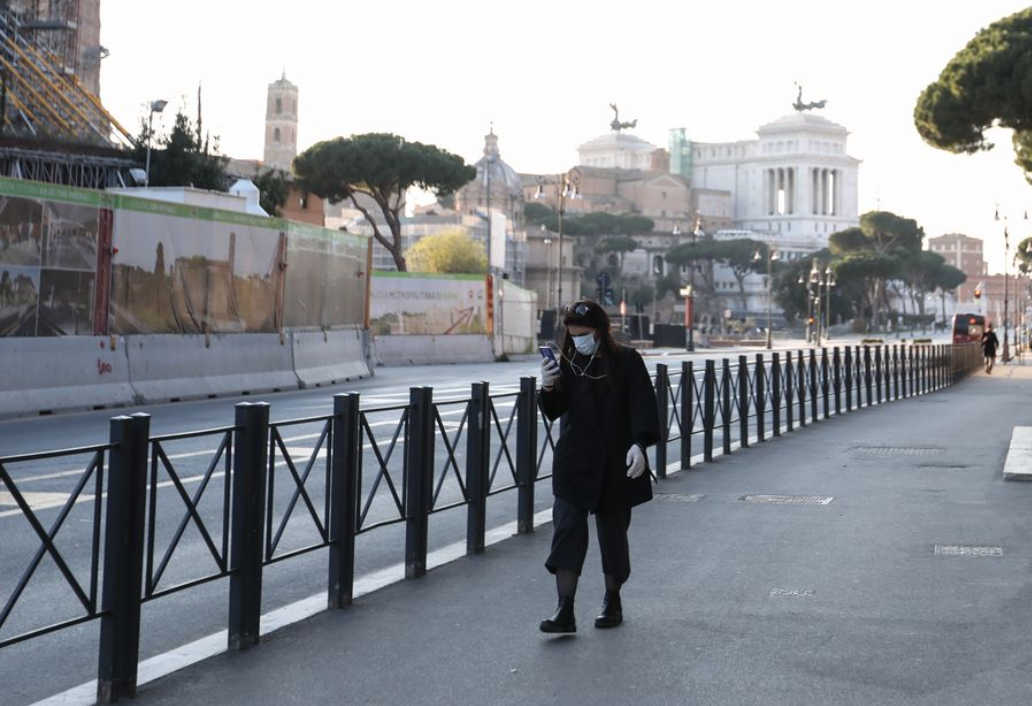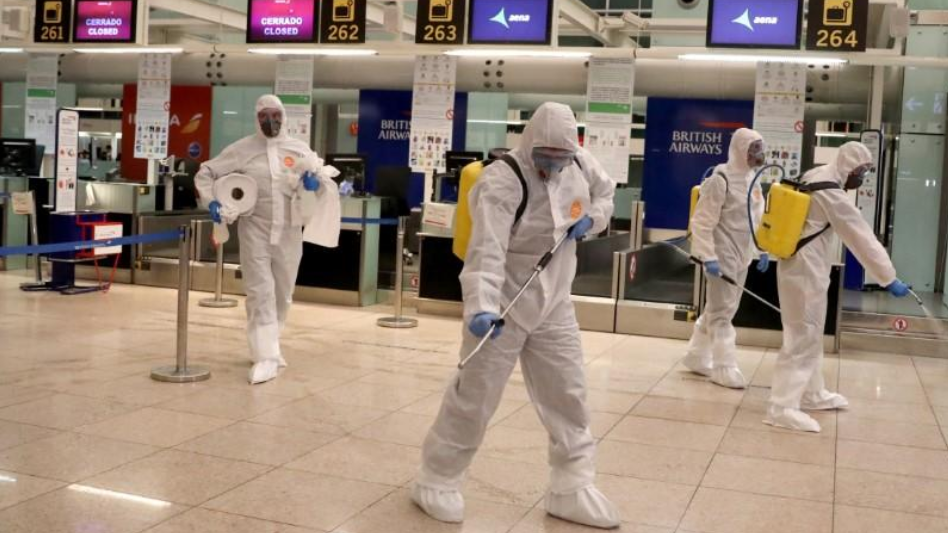Editor's note: This is the 20th article in the COVID-19 Global Roundup series. Here is the previous one.
Italy recorded a jump in deaths from coronavirus of almost 800 on Saturday, taking the toll in the world's hardest-hit country to almost 5,000.
On Thursday, it overtook China as the country worst affected by the highly contagious virus.
Italy's fatalities jumped by 793 to 4,825 in their largest one-day rise since the contagion emerged a month ago.
Health authorities have cited a variety of reasons for Italy's high toll, key among them its large elderly population, who are particularly susceptible to serious complications from the virus. Italy has the world's second-oldest population, and the vast majority of its dead – 87 percent – were over 70.
Jonas Schmidt-Chanasit, a virologist at Germany's Bernhard Nocht Institute for Tropical Medicine, offered another reason for Italy's high death rate: "That's what happens when the health system collapses," pointing to the almost total breakdown of the health system in some areas.

A woman is seen wearing a face mask in Rome, Italy, March 16, 2020.
A woman is seen wearing a face mask in Rome, Italy, March 16, 2020.
Reported infections in Italy rose to 53,578 from 47,021, the Civil Protection Agency said. There were 2,857 people in intensive care, up from 2,655.
On a visit to the hard-hit city of Milan, the leader of a delegation from the Chinese Red Cross openly criticized Italians for failing to take the national lockdown seriously.
Sun Shuopeng said he was shocked to see so many people walking around, using public transportation and eating out in hotels.
On Saturday night, Prime Minister Giuseppe Conte announced another drastic step to tackle what he called the country's biggest crisis since World War II: Factories and all production that are not absolutely essential will be closed.
Lombardy, the northern Italian region around Milan which is the worst-affected by coronavirus, remains a critical situation, with 3,095 deaths and 25,515 cases. Lombardy's regional President Attilio Fontana asked businesses to close all operations excluding "essential supply chains."
In a statement released late on Saturday, Fontana said weekly open markets must be halted as well as most offices and construction sites.
People will not be allowed to practice any outdoor sports, even individually, in the region.
The lockdown measures imposed in Italy earlier this month and emulated by several other countries in Europe, are likely to trigger a recession and heavy job losses.
Italy is not alone in Europe in seeing a surge in deaths caused by the coronavirus. In Spain, the death toll jumped to 1,326 from 1,002 the day before, according to Health Ministry data released on Saturday. The number of cases rose to 24,926 from 19,980.
Although the coronavirus has claimed much less lives in Spain compared to Italy, the Spanish government warned on Saturday that "the worst is yet to come" and said it would do whatever was needed to combat the pandemic.

Members of the Military Emergency Unit (UME) disinfect the Josep Tarradellas Barcelona-El Prat Airport during a partial lockdown as part of a 15-day state of emergency to combat the coronavirus disease (COVID-19) outbreak in Barcelona, Spain, March 19, 2020. /Reuters
Members of the Military Emergency Unit (UME) disinfect the Josep Tarradellas Barcelona-El Prat Airport during a partial lockdown as part of a 15-day state of emergency to combat the coronavirus disease (COVID-19) outbreak in Barcelona, Spain, March 19, 2020. /Reuters
The second-worst outbreak in Europe showed no sign of slowing as the death toll jumped by more than 300 from the previous day. Intensive care units are filling up in some hospitals.
"We have yet to receive the impact of the strongest, most damaging wave, which will test our material and moral capacities to the limit, as well as our spirit as a society," Prime Minister Pedro Sanchez told a news briefing.
Sanchez said Spain had not lived through such a dramatic situation since its 1936-39 civil war, in which around half a million people died. Drawing parallels to a war economy, he said his government was working on plans to produce in Spain the equipment needed to battle coronavirus, such as masks.
His government a week ago declared a 15-day state of emergency nationwide barring people from all but essential outings. Sanchez praised the "exemplary" response and said he had no plans to strengthen the restrictions, which he called the toughest in Europe.
The prime minister also made no mention of extending the state of emergency, though he warned of tough weeks ahead.
The death rate from the current data is around five percent, Maria Jose Sierra, a top official at Spain's health emergency committee, said at an earlier briefing. But she suggested the real rate is lower as testing has mostly been conducted on people in hospital, meaning there are likely far more cases.
In an effort to contain the outbreak, the government announced on Saturday it had acquired more than 640,000 testing devices and said that number could quickly reach a million. Six million more devices could also be on the way, Sanchez said.
Meanwhile, a sharp increase in testing capacity will also follow. Raquel Yotti, director of Carlos III Public Health Institute, earlier said the first devices were being distributed on Saturday and added the government was working on acquiring four robots that could bring the number of daily tests to 80,000. That would be up from the current 15,000-20,000 a day.
Authorities also said they were acquiring more medical equipment, including 700 ventilators. Around 1.3 million protective masks were distributed on Saturday across Spain for healthcare staff and patients.
There is growing concern about overcrowding at hospitals and complaints that facilities could be running short of equipment, such as masks. Some 1,612 patients are currently in intensive care units.
Ricard Ferrer, chairman of Spain's intensive medicine society, told public television channel TVE that he expected that in eight to 10 weeks around 10,000 patients would be in intensive care units.
Ferrer said Spain had the capacity to deal with that number, but added that he hoped that from Monday the confinement measures would start having an impact on the number of cases.
On Friday evening military personnel moved patients from hospitals in Madrid to others with more space.
The military is also building a giant makeshift hospital at a conference center in the Spanish capital and will disinfect nursing homes in Madrid, which have seen large numbers of deaths, Prime Minister Sanchez said.
Of the 17 Spanish regions, Madrid has been the worst hit, with 60 percent of the country's deaths.
(With input from Reuters, AP)